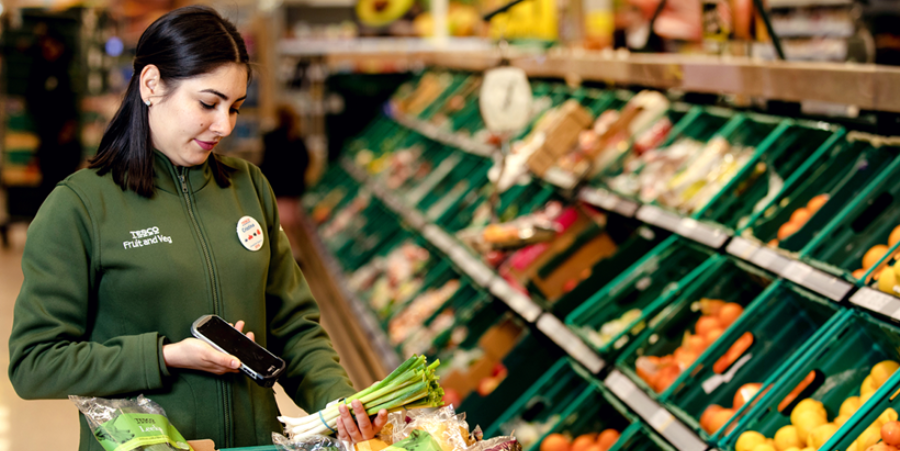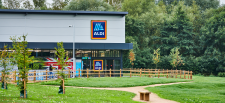Both Tesco and the British Frozen Food Federation (BFFF) have spoken out about how they are actively helping to tackle the issue of food waste, after the Government opened up applications for a second round of more than £6 million funding under Defra’s scheme to cut food waste.
Environment Secretary Michael Gove yesterday (13/5/19) invited organisations to apply for the second round under the government’s scheme.
This comes as Food Waste champion Ben Elliot hosted more than 300 major players from the food industry at London’s Victoria and Albert Museum, where businesses including Nestlé, Tesco, Sainsbury’s, and Waitrose signed a pledge to take tough action on food waste – including halving food waste by 2030.
Mr Gove also unveiled new figures that show redistribution of surplus food in the UK has almost doubled in the last three years, with enough food saved to produce the equivalent of 133 million meals a year.
BFFF response
Richard Harrow, CEO of the British Frozen Food Federation (BFFF), is urging government to highlight the role frozen can play in helping it achieve its ‘Step up to the Plate’ food waste targets.
Speaking after yesterday’s flagship symposium, Harrow said he felt disappointed at the lack of emphasis on frozen as having a significant part to play in reducing food waste.

Richard Harrow, BFFF CEO.
“The scale of food waste in the UK is truly shocking and I firmly believe frozen has a vital role to play in waste reduction efforts, so I had no hesitation whatsoever in signing up to ‘Step up to the Plate’,” he said.
“However, although the event featured lots of discussion about food waste and redistribution – as well as a speech by Dr Emily Shuckburgh highlighting how the eradication of food waste will have a massive impact on controlling climate change – there was hardly anything around the wider use of frozen food, which is hugely disappointing.
“Frozen has a range of brilliant benefits in terms of extending preservation and locking in nutrients, as well as enabling people to only use what they need, which in itself contributes significantly to reducing waste.”
He concluded: “Government has woken up to the fact the UK has a huge problem that needs to be fixed but needs to start seeing frozen as a significant part of the solution. The ‘Step up to the Plate’ symposium was a great start, but clearly there’s more to be done.”
Tesco’s annual food waste
Tesco also took the opportunity to publish its annual food waste data, revealing 63% more food was redistributed to charities, community groups, colleagues and animal feed.
The retailer halved the amount of food safe for human consumption going to energy recovery compared to last year (51% decrease) and is now 81% of the way toward its target that no food safe for human consumption goes to waste.
Overall, this led to the amount of food going to waste in Tesco’s UK operations falling by 17% to 44,297 tonnes (0.45% sales) compared to the previous year.
Tesco CEO, and chairman of Champions 12.3, Dave Lewis said: “Reducing food waste is a global challenge: one in nine people are going hungry whilst a third of the world’s food is wasted. This food waste has a huge environmental impact, creating unnecessary greenhouse gas emissions.

Dave Lewis, Tesco chief executive.
“Publicly reporting food data is crucial to delivering on this ambition. Our food data shows we’re making progress in reducing food waste in our business. We set a challenging target that no food safe for human consumption would go to waste in our UK operations and we are now 81% of the way there.
“We call on other businesses to also report their food waste data; this is the only way that we’ll know whether the UK and the world is on course to reach SDG Target 12.3.”
Environment Secretary Michael Gove added: “Together, we must end the moral, economic and environmental scandal of food waste. The UK is showing real leadership in this area but I urge businesses to join me in signing the pledge so we can bring about real change.”









